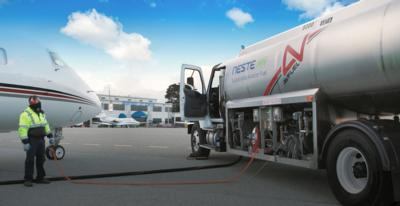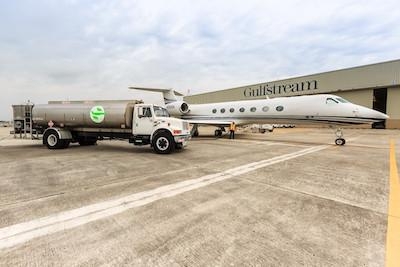Wed, May 19, 2021
NBAA Adds Its Voice To Climate Change Adherents
NBAA and a coalition of aviation groups have urged Congress to consider wide-ranging and comprehensive legislative proposals to achieve dramatic carbon emissions reductions in upcoming infrastructure legislation.

The aviation groups called on the U.S. Senate Commerce Committee, U.S. House Transportation and Infrastructure Committee and the U.S. House Science, Space and Technology Committee to consider legislative efforts in four core areas that will be critical to realizing the aviation sector’s environmental goals. These proposals focus on the development, production and distribution of sustainable aviation fuel (SAF), the deployment of low- and zero-emission technologies, increased funding for aviation environmental research and development and continued advancements in air traffic management.
“The aviation industry has a strong record of addressing its environmental impact and is committed to bold and significant steps to further reduce greenhouse gas emissions,” the aviation groups wrote. “To effectively address the climate change challenge, we must drive technology, infrastructure and operational advances faster and farther.”
To meet these goals, the industry groups have devised a comprehensive series of legislative proposals that will capitalize on the already significant sustainability investments made by the aviation industry. “We urge you to include these provisions in upcoming infrastructure legislation to provide one of the most difficult industries to decarbonize a once-in-a-generation opportunity leap ahead on our environmental goals,” the letter reads.

Addressing climate change will require ambitious and decisive action, said NBAA President and CEO Ed Bolen. “While business aviation continues to make major investments in SAF and electric propulsion, to achieve our goals, we need a partnership between industry and governments that enables and supports the technologies and policies that will allow us to meet our sustainability goals,” Bolen noted.
“With the policy proposals like a SAF-specific blender’s tax credit and competitive grants for advanced air mobility planning and infrastructure, the aviation industry can take immediate and significant steps to reduce greenhouse gas emissions,” Bolen added. “We look forward to working with congressional leaders to reducing aviation’s impact on the environment constructively and effectively.”
More News
Aero Linx: Transport Canada We are a federal institution, leading the Transport Canada portfolio and working with our partners. Transport Canada is responsible for transportation p>[...]
Gross Navigation Error (GNE) A lateral deviation from a cleared track, normally in excess of 25 Nautical Miles (NM). More stringent standards (for example, 10NM in some parts of th>[...]
From AirVenture 2017 (YouTube Edition): Flight-Proven Booster On Display At AirVenture… EAA AirVenture Oshkosh is known primarily as a celebration of experimental and amateu>[...]
Aircraft Parachute System (CAPS) Was Deployed About 293 Ft Above Ground Level, Which Was Too Low To Allow For Full Deployment Of The Parachute System Analysis: The day before the a>[...]
Also: 48th Annual Air Race Classic, Hot Air Balloon Fire, FAA v Banning 100LL, Complete Remote Pilot The news Piper PA-18 Super Cub owners have been waiting for has finally arrived>[...]
 ANN's Daily Aero-Linx (06.29.25)
ANN's Daily Aero-Linx (06.29.25) ANN's Daily Aero-Term (06.29.25): Gross Navigation Error (GNE)
ANN's Daily Aero-Term (06.29.25): Gross Navigation Error (GNE) Classic Aero-TV: Anticipating Futurespace - Blue Origin Visits Airventure 2017
Classic Aero-TV: Anticipating Futurespace - Blue Origin Visits Airventure 2017 NTSB Final Report: Cirrus SR22
NTSB Final Report: Cirrus SR22 Airborne Affordable Flyers 06.26.25: PA18 Upgrades, Delta Force, Rhinebeck
Airborne Affordable Flyers 06.26.25: PA18 Upgrades, Delta Force, Rhinebeck




